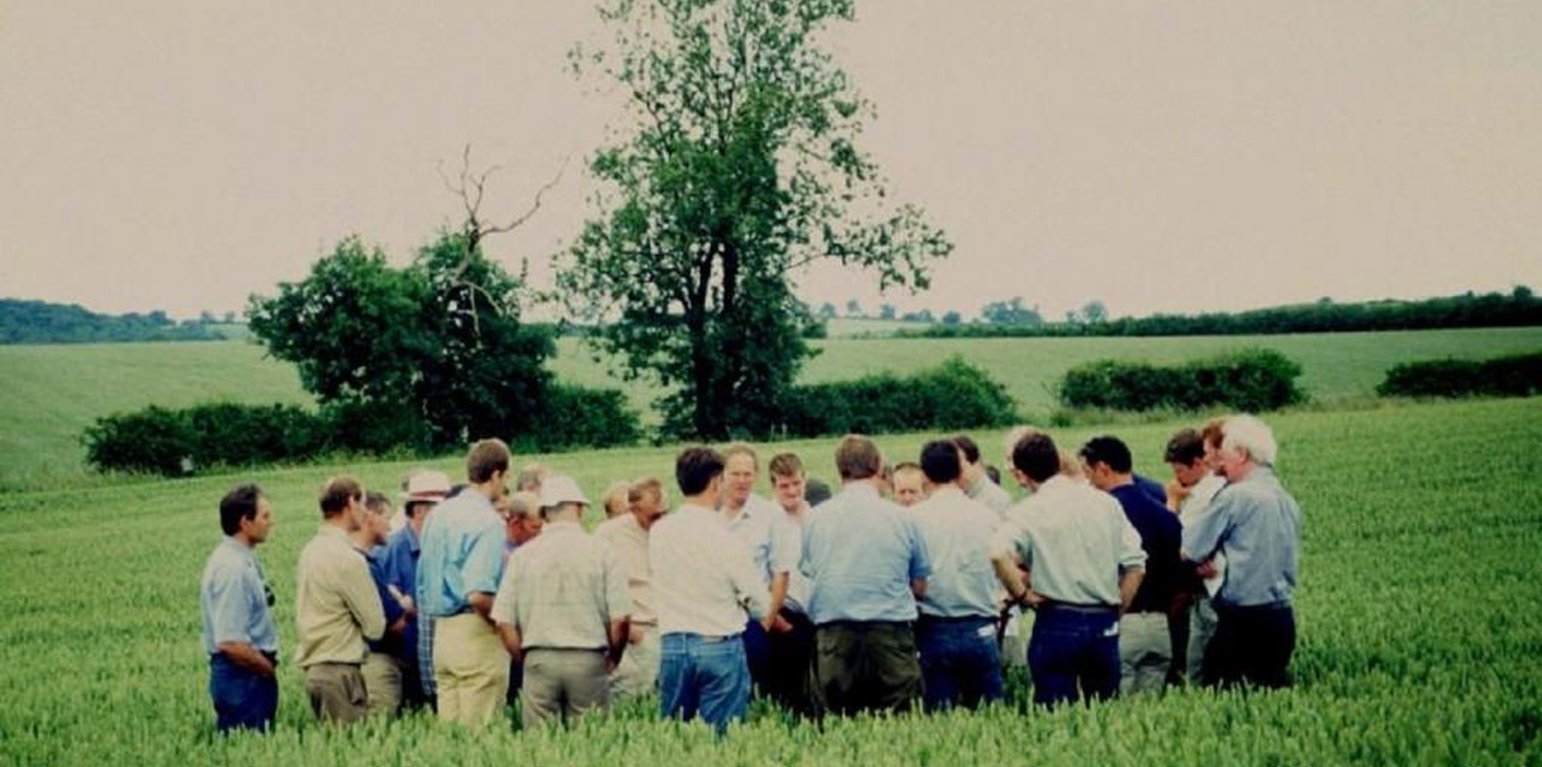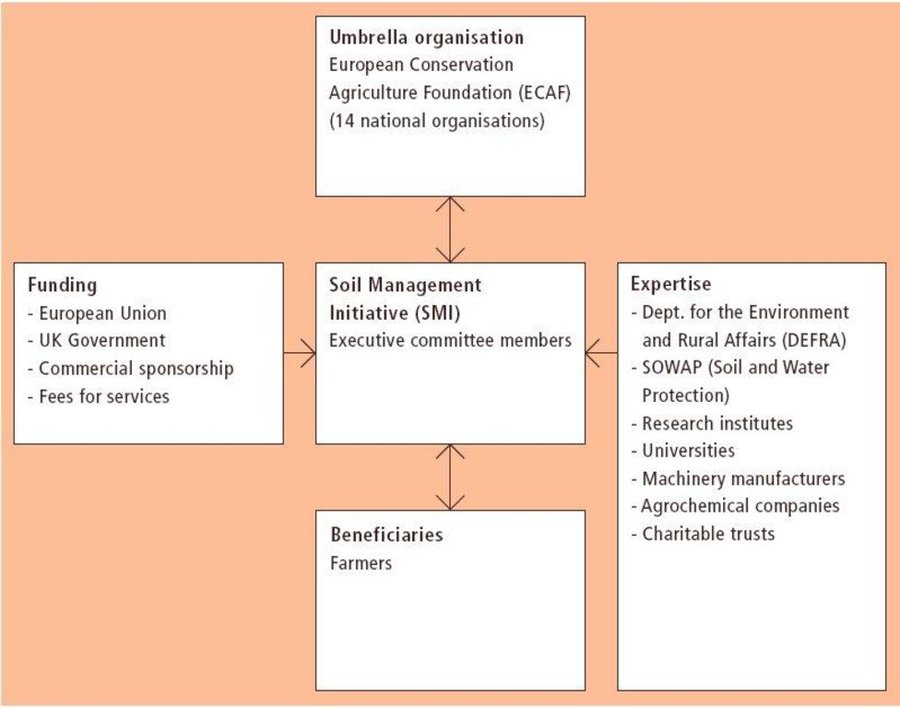Soil management initiative
(United Kingdom)
Description
An independent organisation that promotes the adoption of appropriate soil management practices, especially conservation agriculture, within England.
Aims / objectives: The zero tillage systems promoted in the UK during the 1970s were radical. Pioneering farmers moved from ploughing to zero tillage using special direct drilling machines and non-selective contact herbicides. However, they encountered serious problems with slugs, persistent grass weeds and straw, and zero tillage was largely abandoned. Pressures to reduce crop establishment costs then led to the intermediate method of ???conservation agriculture??? (CA). The Soil Management Initiative (SMI) has been central to the development and promotion of CA. SMI is an independent non-profit organisation that was established by a small, committed group in 1999. Its aim is to promote the adoption of cultivation systems which improve soil quality, minimise soil erosion and water pollution, and simultaneously maintain or enhance farm economic returns. SMI brings together organisations with varied expertise and technical abilities, and provides both research results and advice to the large numbers of farmers who are progressively adopting CA. Furthermore, SMI was a founder member of the European Conservation Agriculture Federation (ECAF), under which there are 14 national organisations. Competence within SMI is drawn from research institutes, educational establishments, farmers and landowners, machinery manufacturers, crop protection companies, charitable trusts, and from independent agronomists and advisers.
Methods: The EU Life fund provided an initial three-year allocation to support SMI. This ended in 2002. SMI now raises finance from the UK and EU governments, commercial sponsorship (international agrochemical and machinery companies) and fees paid by farmers. In the current climate of privatisation of advisory services, there is no targeted governmental advisory body to carry out such a function. DEFRA (The UK Government???s Department for Environment, Food and Rural Affairs) does however provide some support to SMI with both funds and expertise, and is an associate member. Amongst SMI???s methods for spreading the message of improved soil management are field days - where farmers pay to attend- an interactive web-based help-line on ???lo-till??? and farmers??? magazines. SMI also undertakes extension roadshows???, visiting specific farms for question and answer sessions. A formal session with presentations from experts precedes a practical outdoor demonstration. SMI gains knowledge and practical experience from the ???joint venture??? at Loddington (see associated technology).
Location
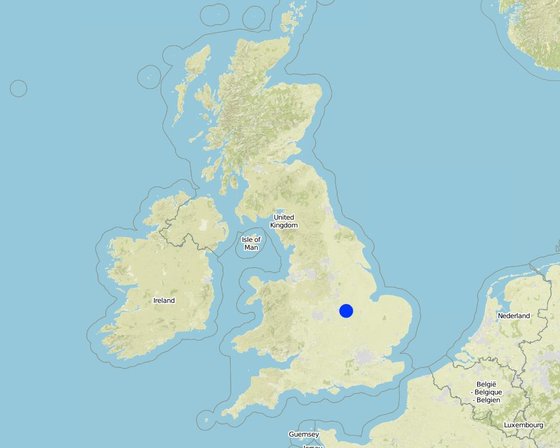
Location: Loddington, Leicestershire, United Kingdom
Geo-reference of selected sites
Initiation date: 1999
Year of termination: n.a.
Type of Approach
-
traditional/ indigenous
-
recent local initiative/ innovative
-
project/ programme based
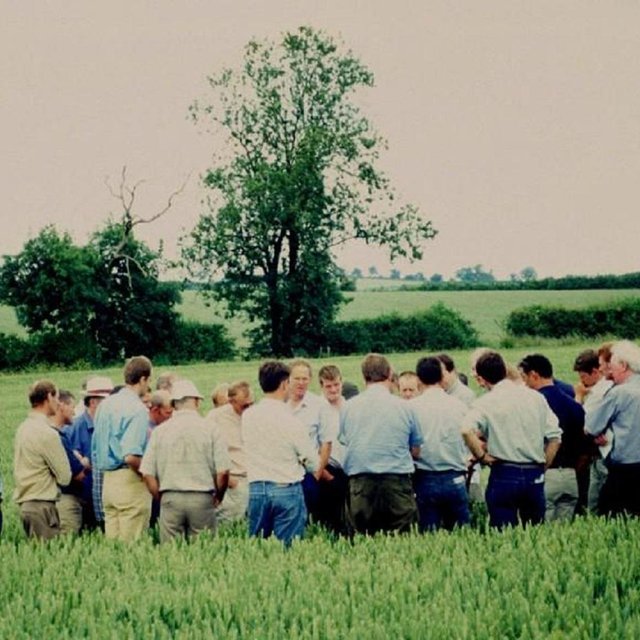
Extension methods include practical and theoretical elements: farmers attending a field day organised by SMI.
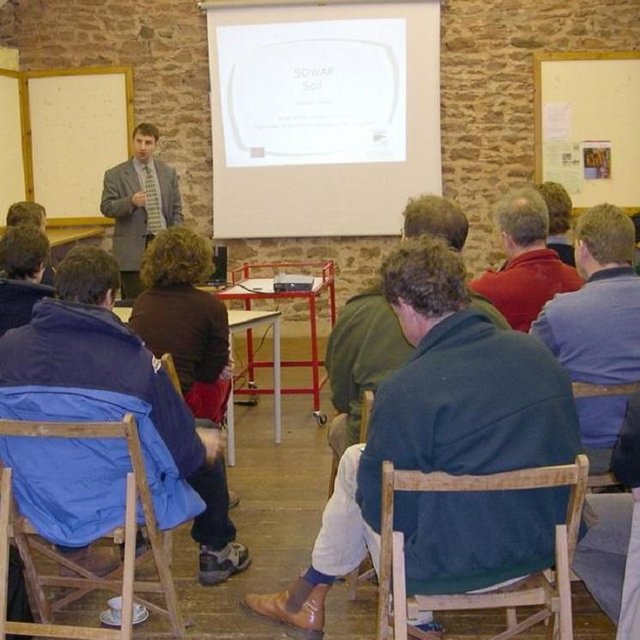
Classroom training sessions on conservation agriculture with presentations from experts.
Approach aims and enabling environment
Main aims / objectives of the approach
- improve technology transfer through extension to farmers
- promote agricultural and environmental policies to support sustainable soil management
- improve information exchange in and amongst the research, policy and practitioner communities and private companies (machinery and agrochemical etc)
- research, develop, evaluate and promote soil management systems to improve crop production and protection of the environment
The SLM Approach addressed the following problems:
-Attempts to apply conservation agriculture by arable farmers in the 1980s and 90s were not matched by an understanding of the whole system. There was a thirst for more knowledge.
-Privatisation of government advisory services has left a gap to be filled in this case an advisory body in sustainable soil management.
Conditions enabling the implementation of the Technology/ ies applied under the Approach
Conditions hindering the implementation of the Technology/ ies applied under the Approach
-
Availability/ access to financial resources and services: SMI has needed to operate within a tight budget, and this was reduced further in 2002 when the 3-year allocation from the EU Life fund ended.
Treatment through the SLM Approach: The remedy has been to depend more on support from private companies (agrochemical and machinery) and payment by farmers for advice/attendance at field days.
-
Legal framework (land tenure, land and water use rights): The existing land ownership, land use rights / water rights moderately hindered the approach implementation Ownership and the attitude of the owner towards CA can affect uptake significantly. For example, some landlords do not like tenants to practice conservation agriculture because ???it looks messy??? with trash lying on the surface rather than neatly ploughed fields.
-
Knowledge about SLM, access to technical support: Farmers lacked adequate knowledge regarding use of new CA implements, and emerging weed and pest control methods.
Treatment through the SLM Approach: SMI provides demand-driven technical support services.
Participation and roles of stakeholders involved
Stakeholders involved in the Approach and their roles
| What stakeholders / implementing bodies were involved in the Approach? |
Specify stakeholders |
Describe roles of stakeholders |
| local land users/ local communities |
|
Differences between the participation of men and women: None in principle, though de facto most farmers are male, and they constitute the majority at field days. |
| SLM specialists/ agricultural advisers |
|
|
| national government (planners, decision-makers) |
Govt. agencies |
|
| contractors, environmentalists/researchers |
|
|
Involvement of local land users/ local communities in the different phases of the Approach
none
passive
external support
interactive
self-mobilization
implementation
advisory services/demand-driven field events
Research
on-farm research on conservation agriculture
Flow chart
Institutional framework: Linkages between the Soil Management Institute, the European Conservation Agriculture Foundation, funding agencies, research institutions, land users and producers of machiner
Decision-making on the selection of SLM Technology
Decisions were taken by
-
land users alone (self-initiative)
-
mainly land users, supported by SLM specialists
-
all relevant actors, as part of a participatory approach
-
mainly SLM specialists, following consultation with land users
-
SLM specialists alone
-
politicians/ leaders
Decisions were made based on
-
evaluation of well-documented SLM knowledge (evidence-based decision-making)
-
research findings
-
personal experience and opinions (undocumented)
Technical support, capacity building, and knowledge management
The following activities or services have been part of the approach
-
Capacity building/ training
-
Advisory service
-
Institution strengthening (organizational development)
-
Monitoring and evaluation
-
Research
Capacity building/ training
Training was provided to the following stakeholders
-
land users
-
field staff/ advisers
Form of training
-
on-the-job
-
farmer-to-farmer
-
demonstration areas
-
public meetings
-
courses
Subjects covered
Technical demonstrations in the field are the primary means of knowledge transfer. A formal session with presentations from experts precedes a practical outdoor demonstration. Although conservation agriculture is the umbrella topic, specific issues - such as herbicide application are treated on demand.
Advisory service
Advisory service was provided
-
on land users' fields
-
at permanent centres
-
Weekly magazine and helpopline
Name of method used for advisory service: Roadshows; Key elements: visiting specific farms for question and answer sessions, an e-mail/website based lo-till helpline through the Farmers. Weekly magazine (www.fwi.co.uk). SMI furthermore contributes to frequent press articles as well as producing publications
Monitoring and evaluation
bio-physical aspects were regular monitored by project staff through measurements
technical aspects were regular monitored by project staff through measurements
socio-cultural aspects were ad hoc monitored by project staff through observations
economic / production aspects were regular monitored by project staff through measurements
area treated aspects were ad hoc monitored by project staff through measurements
management of Approach aspects were ad hoc monitored by project staff through observations
There were None changes in the Approach as a result of monitoring and evaluation: SMI is constantly refining its advice on the basis of results monitored from the field.
Research
Research treated the following topics
-
sociology
-
economics / marketing
-
ecology
-
technology
Conservation agriculture was initially supported by public funded research. Current research - through SMI but also some research institutes and farmers themselves - is focused on specific issues, including slug control, grass weeds, trash management and soil compaction. Recently, environmental, economic and social concerns arising from the practice of conventional agriculture have been taken up
Financing and external material support
Annual budget in USD for the SLM component
-
< 2,000
-
2,000-10,000
-
10,000-100,000
-
100,000-1,000,000
-
> 1,000,000
Precise annual budget: n.a.
Approach costs were met by the following donors: international non-government (-): 10.0%; government (national government - DEFRA): 10.0%; international (European Union: EU Life Fund): 40.0%; local community / land user(s) (regional council): 10.0%; other (Companies: Monsanto,Syngenta): 30.0%
The following services or incentives have been provided to land users
-
Financial/ material support provided to land users
-
Subsidies for specific inputs
-
Credit
-
Other incentives or instruments
Financial/ material support provided to land users
There are no subsidies specifically connected to CA or sustainable soil management. However, the CA principles fall within UK new cross-compliance conditions for the Single Farm Payment scheme which effectively constitutes a subsidy to farmers for following sound land management practices. There is also a recently introduced Environmental Stewardship Scheme, which embraces environmental concerns. Under this scheme, it is likely that much of the area under conservation agriculture will qualify for, at least, the entry-level category of subsidy, currently set at approx. US$ 60/ha/year: note: this is on top of the single farm payment, which will be considerably greater (for more details see www.defra.gov.uk). Manufacturers of non-inversion tillage equipment provide machines for demonstration. Manufacturers of biocides provided finance and support to specific farmers in the early stages of progressive development.
partly financed
fully financed
Labour by land users was
-
voluntary
-
food-for-work
-
paid in cash
-
rewarded with other material support
Impact analysis and concluding statements
Impacts of the Approach
No
Yes, little
Yes, moderately
Yes, greatly
Did the Approach help land users to implement and maintain SLM Technologies?
erosion reduced, organic matter built up, nitrate losses reduced etc
Did other land users / projects adopt the Approach?
There are other similar service providers in different aspects of farming, though not in soil management.
Main motivation of land users to implement SLM
Sustainability of Approach activities
Can the land users sustain what hat been implemented through the Approach (without external support)?
SMI can continue to support land users with advice as long as they are prepared to continue paying for the services, and sponsorship continues from agencies and commercial companies. Land users can continue to practice CA without external support - but services such as those provided by SMI are extremely valuable.
Conclusions and lessons learnt
Strengths: land user's view
Strengths: compiler’s or other key resource person’s view
-
Has successfully stimulated conservation agriculture, which should in turn ultimately lead to environmentally sound and sustainable land management in England (How to sustain/ enhance this strength: Continue operations for as long as possible)
-
SMI has acted effectively as a channel for making results from research, and a wide body of experience, readily available to farmers (How to sustain/ enhance this strength: Continue to focus on farmers as the main target group and link them with research and private companies.)
-
SMI has managed to combine the efforts and expertise of a wide range of actors towards a common goal: to provide a unique advisory service in conservation agriculture (How to sustain/ enhance this strength: Continue to serve as a centre of excellence.)
-
Improvements in soil management techniques have been documented in an accessible way (How to sustain/ enhance this strength: Continue to publish simply and clearly as new messages develop.)
-
Ad hoc advice available via a web-based helpline (How to sustain/ enhance this strength: Continue.)
Weaknesses/ disadvantages/ risks: land user's viewhow to overcome
Weaknesses/ disadvantages/ risks: compiler’s or other key resource person’s viewhow to overcome
-
SMI has an on-going problem with adequacy of funding
Through top-class services, continue to attract funds and voluntary contributions from a wide range of actors.
References
Reviewer
-
Alexandra Gavilano
-
Fabian Ottiger
-
Deborah Niggli
Date of documentation: Jan. 12, 2009
Last update: April 4, 2018
Resource persons
-
Alastaire Leake (aleake@gct.org.uk) - SLM specialist
Full description in the WOCAT database
Documentation was faciliated by
Institution
- UK Soil Management Initiative - United Kingdom
Project
- Book project: where the land is greener - Case Studies and Analysis of Soil and Water Conservation Initiatives Worldwide (where the land is greener)
Key references
-
Soil Management Initiative/Department for Environment, Food and Rural Affairs (DEFRA) (undated) A guide to managing cropManagement Initiative (undated) Improved soil management for agronomic and environmentalSoil Management Initiative/V??derstad (undated) Target on establishment: innovation for the future of farming.: (www.smi.org.uk)SMI, UKSMI, UK
-
Management Initiative (undated) Improved soil management for agronomic and environmental: SMI, UK
-
Soil Management Initiative/V??derstad (undated) Target on establishment: innovation for the future of farming.: SMI, UK
